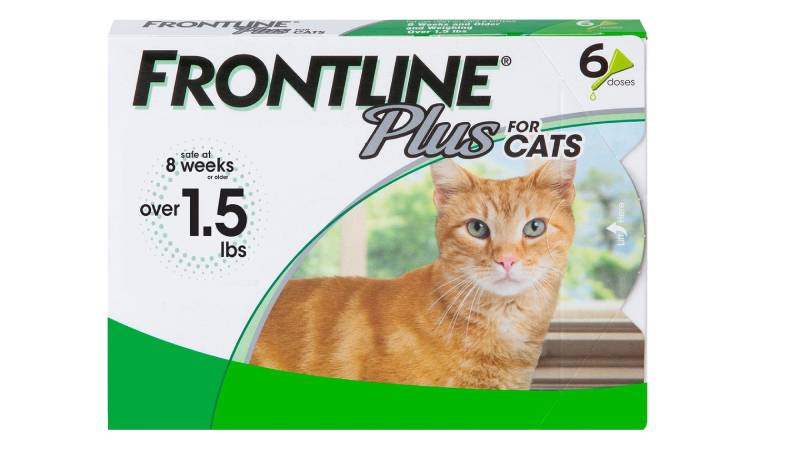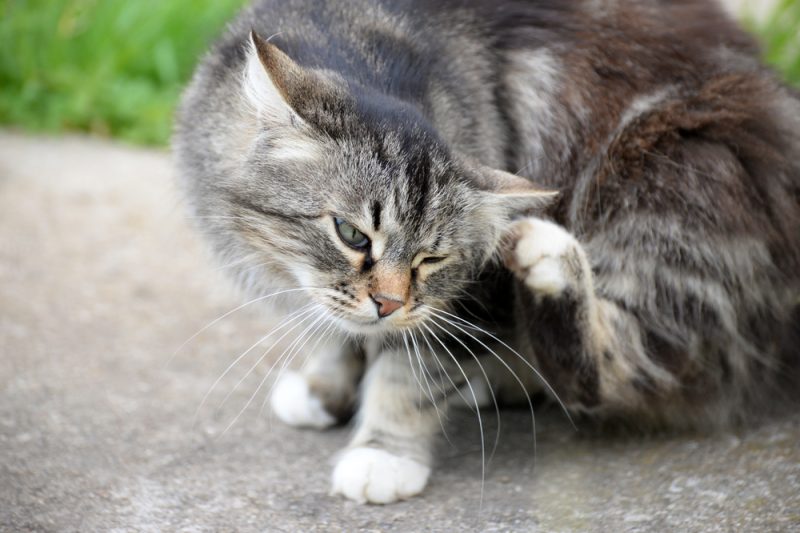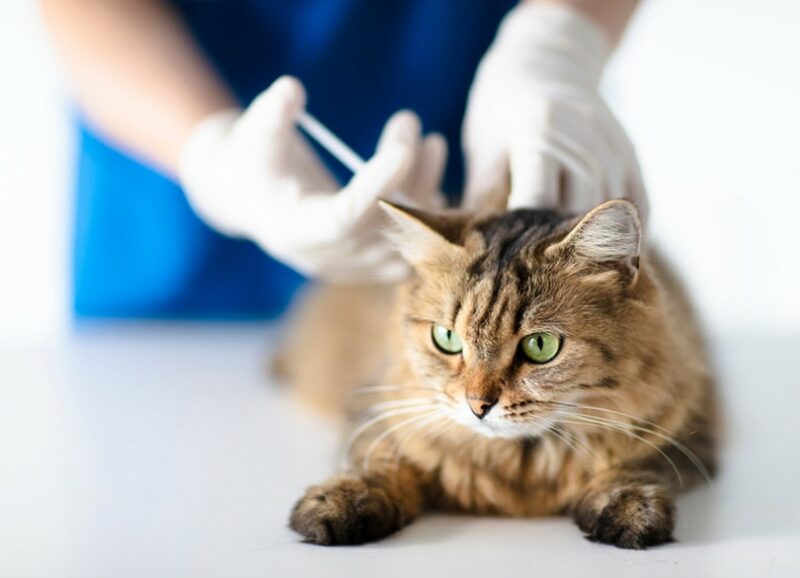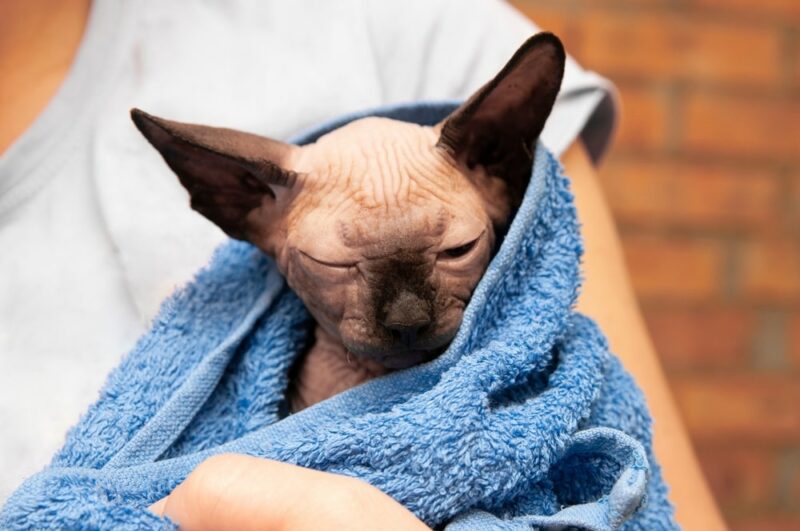It is important that our cats are kept comfortable, content, safe, and most importantly, in good health. One thing that all cats are at risk of, whether they are indoor or outdoor cats, is parasites. In particular, worms can affect indoor cats in lots of different ways. It is surprisingly easy for indoor cats to become infected with worms and it is very important that owners keep up to date with anti-parasite medication and ensure they only use products that have been recommended by a vet.
The good news is that there are plenty of products on the market to protect your cat. Not only are there a number of effective and safe ways to treat worms in your cat, but there are also lots of preventative measures owners can take to reduce the chances of worm infections going forward.
Understanding a little bit about the life cycle of certain worms can help us protect our cats and keep them in the best health possible. Read on to find out more.

How Do Cats Get Worms?
Any cat can pick up worms in their environment when they are in close contact with worm eggs and infected feces of other animals. A common way for cats to pick up worms is if they walk through an area where there is infected feces or eggs that then become stuck to their paws. Once the eggs are on your cat’s paws, the next time your cat starts to groom themselves (which they do multiple times a day) the eggs or fecal particles will be ingested, and your cat will become infected. Indoor and outdoor cats are able to pick up worms easily this way.
Outdoor cats that hunt small birds or rodents will pick up worms if they eat what they catch. This is because worms often use small mammals as an intermediate host. The worm larvae dwell in the muscles and are ingested when the cat eats the small animal.
Some species of worms, such as hookworms, will actively burrow into a cat’s skin if they walk over an area where they can pick them up on their paws.


Common Worms in Cats
There are many different worms that can infect our cats. There are intestinal worms, lungworms, and heartworms just to name a few. The most common ones we encounter in cats are listed below. Be aware there are many others not mentioned below that may affect your cat depending on what part of the world you are in. Your vet will be able to advise you on what you need to treat in your area.
Roundworms
Roundworms that dwell in the intestines are very common in cats. The two roundworms that are seen frequently in cats are Toxocara cati and Toxascaris leonina.
Cats shed roundworm eggs in their feces. The eggs exist in the environment for long periods of time and can be picked up by other cats. They will normally be eaten directly or become ingested if a cat eats an intermediate host such as a small rodent or a bird. Certain types of roundworms such as Toxocara cati can infect kittens by being passed on through the mother’s milk. This is because whenever there is a roundworm infestation, some of the larvae become dormant in parts of the cat’s body. If a female cat becomes pregnant, the larvae migrate to the cat’s mammary glands and are released in the milk when she is feeding her kittens.
This occurs frequently and every litter of kittens should be treated for worms at a young age as a precaution.

Hookworms
Common cat hookworms include Uncinaria stenocephala and Ancylostoma tubaeforme.
Hookworms latch onto the lining of your cat’s intestines and feed. They can cause internal bleeding and weight loss in cats. If there is a large enough infestation, your cat may become anemic too. Cats become infected by hookworms either by eating the eggs, eating an intermediate host, or by hookworms burrowing their way through the skin.
Tapeworms
Common tapeworms affecting cats include Dipylidium caninum and Taenia taeniaeformis. Tapeworms are long thin worms composed of individual sections. Eggs are released into the cat’s intestines and get passed out in the feces.
Tapeworms have an intermediate host that eats the eggs. If the intermediate host gets eaten by a cat, they then become infected. Different species of tapeworm have different intermediate hosts. Intermediate hosts can be as small as a flea. Dipylidium canis is transmitted to cats via fleas. If you notice fleas on your cat, you should assume they have been infected with tapeworms too, and treat them accordingly.

How Do Indoor Cats Get Worms?
So now we have discussed how cats become infected with worms in general, how do indoor cats manage to pick up worms? There are a few different ways that indoor cats can become infected with worms, so let’s discuss them below.
Contamination of the Home Environment
Despite your best efforts, it is still possible for cats to pick up worm eggs from inside your home. Even if your cat never sets foot outside your four walls, other humans and animals will leave and return multiple times every day.
Worm eggs are tiny, often too small to see with the naked eye. Worm eggs have the ability to lay dormant for months or years on end, and they can easily be picked up when walking outside and tracked into the house. Hookworm larvae mature into a form of the worm that is able to penetrate the skin of animals and humans. Hookworms are commonly picked up when walking in soil or on grass, which most of us do every day.
You can minimize the risk of picking up worms and eggs by changing shoes before you enter your home. If you have other pets such as dogs, it is very difficult to ensure they are not bringing in worm eggs as you will not be able to see them. This is why it is so important to treat all animals in the household with worm treatment that has been prescribed by your vet.
If you need to speak with a vet but can't get to one, head over to PangoVet. It's an online service where you can talk to a vet online and get the advice you need for your pet — all at an affordable price!

Intermediate Hosts in the House
Unfortunately, the majority of worms that affect cats have evolved to use intermediate hosts as part of their life cycle. This means that small critters such as fleas, flies, ticks, rats, and mice can and will all contain stages of worm life cycles that can infect our cats. We can control the presence of these creatures to a certain extent, but you can never guarantee your home will be completely free of them.
Mixing With Other Pets
If you have more than one pet and some of your pets are indoor only, but some others go outside, there will be sharing of parasites. This is because all the animals will live in close proximity, often having communal food and water bowls. Infected pets will shed eggs and they will be in the environment for your indoor cat to pick up one way or another. Cats using the same litter box will be at high risk of picking up worm eggs and ingesting them when they groom themselves. Even dogs and cats that live together, despite being separate species, have been known to groom each other and spread parasites between themselves.
It is important to note that humans can become infected with worms, so it is very important that you keep children away from litter trays and always wash hands after having contact with animals.

How to Prevent Your Indoor Cat from Getting Worms?
The first thing to do in this scenario is to treat your indoor cat as an outdoor cat when it comes to parasite medication. Just because they do not physically go outside, doesn’t mean they aren’t being exposed to worms in some form, on a daily basis.
- All kittens should be treated after they are born using a vet-approved protocol suitable for nursing kittens.
- Any new addition to the household should be dewormed before their arrival.
- Clean your house regularly.
- Ensure all animals in the house are treated regularly with worm medication prescribed by your vet.
- Monthly flea treatment should be used to prevent the spread of tapeworms as they can use the flea as an intermediate host.
- Keep your cat’s litter box clean.
- Isolate infected animals. If you know one of your pets has worms, keep them away from other animals, and do not let them roam around your house.
- If your cat goes to the bathroom outside, pick up their poop wherever possible.
- Keep up to date with your cat’s vet health checks.
- Have your vet perform routine fecal examinations for worm egg counts.
- Clean your shoes or remove them when you return home.
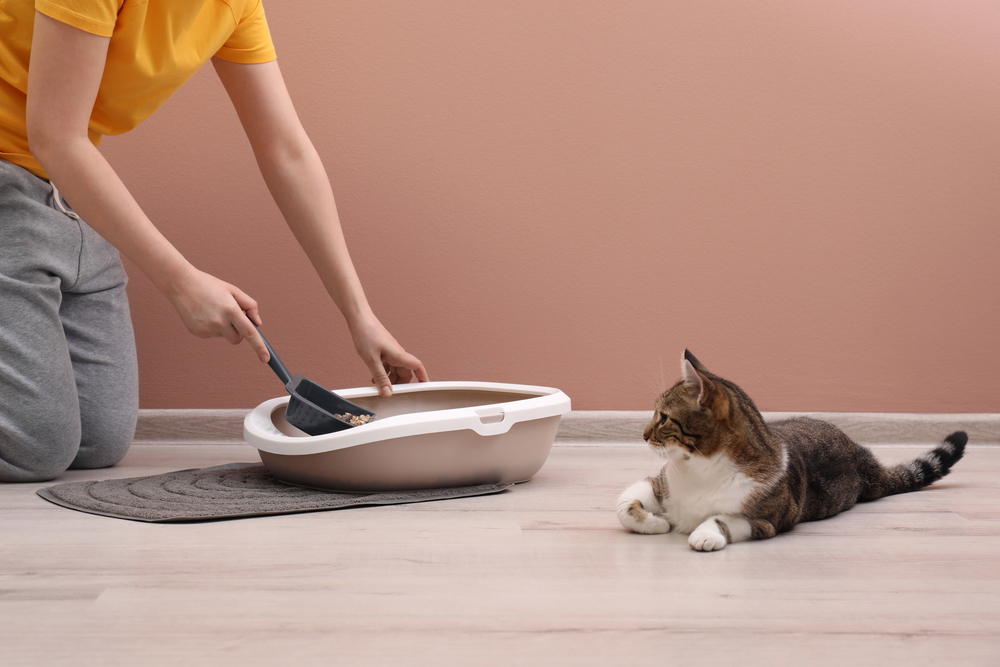

Conclusion
Lots of owners think that because their cats live indoors, they will not be at risk of catching worms. Unfortunately, this is not the case, and many indoor cats end up with large worm burdens as their owners do not take the necessary preventive measures. Worms can affect indoor and outdoor cats and have a devastating effect on their quality of life.
It is very important to keep up to date with worm and flea treatment. If you are unsure which treatment is appropriate for your cat, your vet can advise you.
Featured Image Credit: Prystai, Shutterstock


